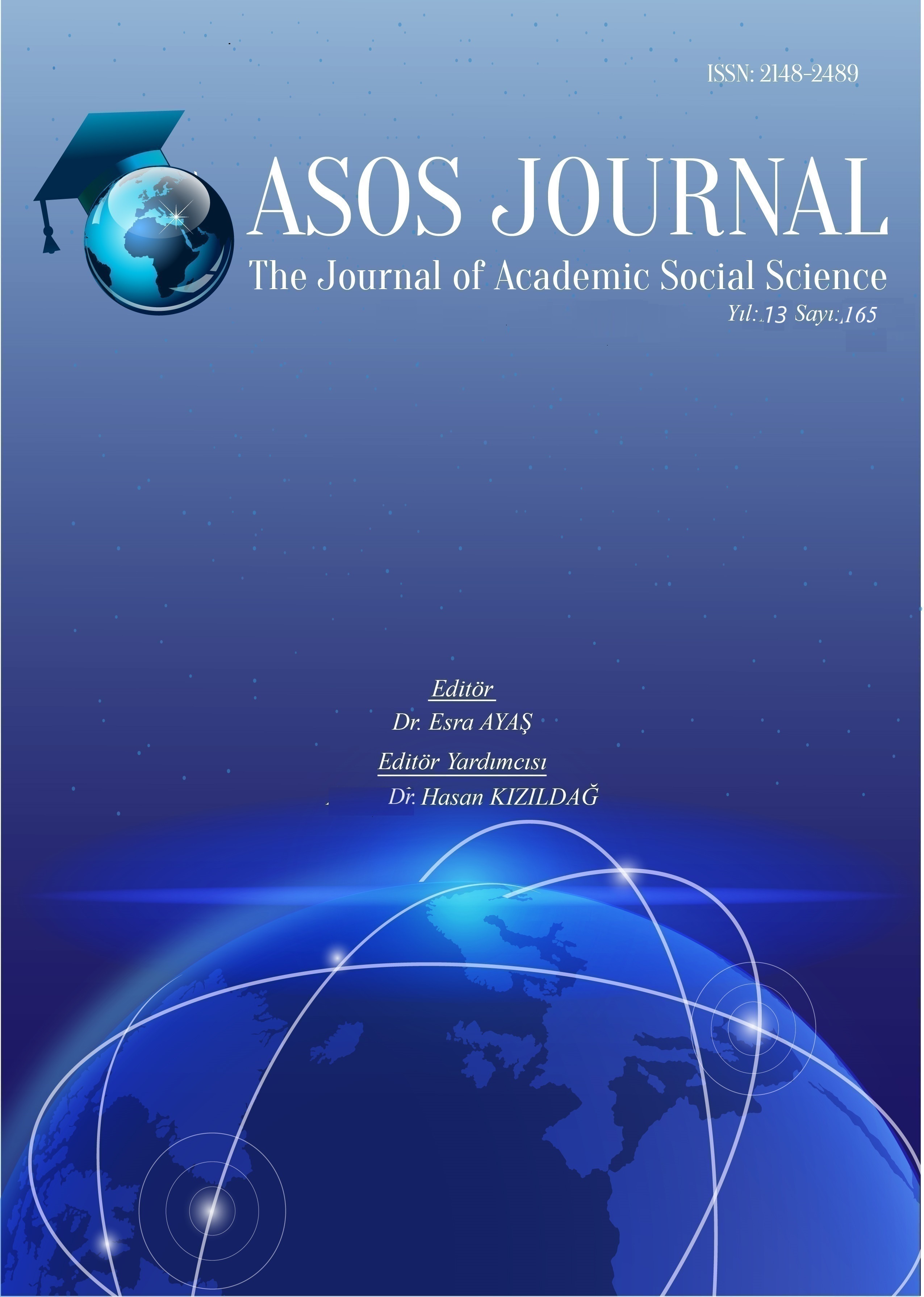Author :
Abstract
Bu çalışmada Selâhaddîn Eyyûbî’nin (567-589/ 1171-1193) yakın çevresinde özel bir yere sahip Kadı İbn Zekiyüddîn ya da tam adıyla Ebü’l-Meâlî Muhyiddîn Muhammed b. Alî’ nin (ö. 598/1202) Kudüs’ün fethi sonrasında verdiği hutbenin siyasî açıdan önemi üzerinde durulacaktır. Bu hutbe, mutat bir vaaz olmasının ötesinde, İslâm ümmetini tek bir çatı altında toplamayı hedefleyen siyasî ve dînî bir manifestoya benzetilmektedir. Hutbenin irad edildiği Cuma namazında, Sultân Selâhaddîn’in yanı sıra ulemâ, âbidler, zâhidler ile askerî erkânın hazır bulunması, hutbenin muhatap kitlesini ve kimlerin bundan ders çıkarması gerektiğini ortaya koymaktadır. Bu hutbenin kendi dönemi için son derece etkili olmasına, sonrasında bununla ilgili Arapça ve İngilizce olarak yazılmış bazı akademik çalışma bulunmasına rağmen, Türkçe literatürde bu hutbeye pek de rastlanılmamış ve haliyle bunun üzerinden birçok perspektifin yakalanamamış olması, konunun akademik açıdan taşıdığı önemi artırmaktadır. Ayrıca farklı dillerdeki çalışmaların hutbenin genellikle edebi yönüyle ilgilenmesi ve nadiren siyasî yönüne vurgu yapılmış olması, çalışmanın önemini daha da artırmaktadır. Çalışmada yöntem olarak kapsamlı bir literatür taraması gerçekleştirilmiş ve elde edilen veriler, betimsel ve analitik çözümleme tekniklerine dayandırılarak değerlendirilmeye çalışılmıştır.
Keywords
Abstract
This study focuses on the political significance of the sermon delivered by Qadi Ibn Zakiyy al-Dīn—whose full name is Abū al-Maʿālī Muḥyī al-Dīn Muḥammad b. ʿAlī (d. 598/1202) —a prominent figure within the immediate vicinity of Ṣalāḥ al-Dīn al-Ayyūbī (567–589/1171–1193), after the conquest of Jerusalem. Beyond being just an ordinary religious address, this sermon is regarded as a political and religious manifesto, aiming to unify the Islamic ummah under a single authority. The presence of Sultan Ṣalāḥ al-Dīn, alongside scholars, devout worshippers, ascetics, and military officials at the Friday prayer during which the sermon was delivered, clearly indicates the intended audience and highlights those who were expected to benefit from its message. Although this sermon was highly influential in its own time and has subsequently been the subject of some academic studies in Arabic and English, its limited presence in Turkish scholarly literature—and, consequently, the lack of diverse interpretative perspectives developed through it- grows in importance in terms of its academic significance. Moreover, the fact that studies in other languages have generally focused on the literary aspects of the sermon, with only limited attention paid to its political dimension, improves the significance of the present research. The study employed a comprehensive literature review as its methodology, and the data obtained have been evaluated through descriptive and analytical methods.





